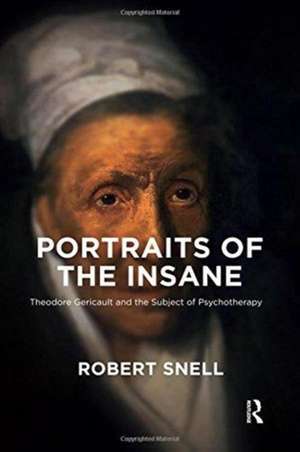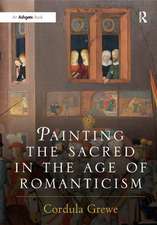Portraits of the Insane: Theodore Gericault and the Subject of Psychotherapy
Autor Robert Snellen Limba Engleză Paperback – 28 sep 2016
Preț: 320.13 lei
Preț vechi: 336.99 lei
-5% Nou
Puncte Express: 480
Preț estimativ în valută:
61.28€ • 66.58$ • 51.51£
61.28€ • 66.58$ • 51.51£
Carte tipărită la comandă
Livrare economică 21 aprilie-05 mai
Preluare comenzi: 021 569.72.76
Specificații
ISBN-13: 9781782202479
ISBN-10: 1782202471
Pagini: 256
Dimensiuni: 152 x 229 x 21 mm
Greutate: 0.47 kg
Ediția:1
Editura: Taylor & Francis
Colecția Routledge
Locul publicării:Oxford, United Kingdom
ISBN-10: 1782202471
Pagini: 256
Dimensiuni: 152 x 229 x 21 mm
Greutate: 0.47 kg
Ediția:1
Editura: Taylor & Francis
Colecția Routledge
Locul publicării:Oxford, United Kingdom
Public țintă
Academic and Professional Practice & DevelopmentCuprins
Introduction , Illustrations , The canvases unrolled , Géricault, a biographical sketch , Madness in modernity, 1656–1789 , The Revolution, Cabanis, Pinel, the asylum , A new account of the human: responses to Pinel’s Traité , The Golden Age of alienism , Géricault and the alienists , History painter , Surplus and the limits of interpretation , Some Conclusions
Descriere
The book sketches the history of this last process, from the Enlightenment through to the Revolution and its public health policies, to the birth of the asylum in its interface with the penal system. But there was also a new medico-philosophical conviction that the mad were never wholly mad.














